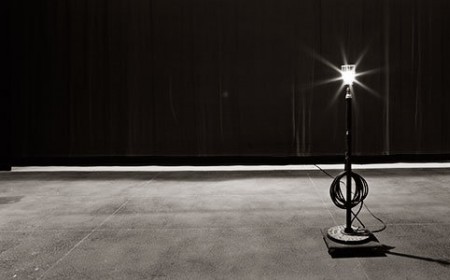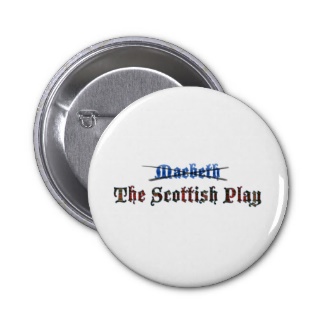To Be or Not To Be a Superstition?
 The world of theatre is a precarious thing, being unable to predict what will be a hit, and what will be a miss; one day you’re hot, the next day you’re not, so it’s not surprising that superstitions are taken seriously by drama peeps – no matter how ridiculous they seem!
The world of theatre is a precarious thing, being unable to predict what will be a hit, and what will be a miss; one day you’re hot, the next day you’re not, so it’s not surprising that superstitions are taken seriously by drama peeps – no matter how ridiculous they seem!
The most famous theatrical superstition of course relates to Shakespeare’s Macbeth, where folklore has made the uttering of the title character’s name so unlucky that it is believed to be cursed.
There are many popular beliefs about how the tradition came about, including the myth that the play was originally cursed by a witches’ coven after the prop master allegedly stole their cauldron for a performance. Another suggests that Shakespeare actually used a real curse in the witches’ scene, and yet another theory claimed that Shakespeare was so disappointed to hear King James I didn’t enjoy the play that celebrated his Celtic heritage, that Wills referred to it as the Scottish play from hence forth.
Although it’s true that many accidents and freak occurrences have been associated with the play, this could easily be explained away. Firstly, there are a good number of fight scenes, many of which are played out in dim lighting. Secondly, I’m no mathematician, but even I can work out that a popular play that is performed very regularly is statistically more likely to incur accidents than one that isn’t!
Thirdly, it’s almost become a self-fulfilling prophecy in that if bad things happen in a production of Macbeth, everyone blames the curse and it gets added to the litany of other superstition-related events – but with all the rigging, props, and equipment required for a play, it’s not surprising there are accidents on stage, and that’s not even allowing for human error.
The most likely reason behind the superstition is probably due to the cost and enduring popularity of the play itself. Because it is a relatively short play, inexpensive to produce, and a sure-fire hit, many theatres put the show on as a last ditch attempt to recoup some money in times of trouble – often failing, and closing shortly after. That would make any thespian nervous!
 Another popular superstition attributed to the theatre is to wish for someone to “break a leg” before a performance rather than wish them good luck – this sounds like someone has anger issues, but it’s not as violent as it seems!
Another popular superstition attributed to the theatre is to wish for someone to “break a leg” before a performance rather than wish them good luck – this sounds like someone has anger issues, but it’s not as violent as it seems!
Theorists suggest that the term actually derived from a curtsey, where the players bend/’break’ their legs to the applauding audience at the end of the show. Alternatively, Queen Elizabeth I was known to throw bags of coins on stage following a good performance, whereupon the actors would need to bend/’break’ their legs to pick up the loot.
Whistling back stage is also taboo, but for good reason. Before the days of modern communication, whistling was the most effective way for back stage managers to instruct equipment teams when to lift/lower/move bits of sets/machinery/props etc., so anyone else whistling backstage could really muck things up!
Of course, the standard superstitions all stand in the theatre too – no peacock feathers, don’t break mirrors, walk under ladders, avoid the number thirteen, et al, making it a lot to remember not to do… on top of their lines!
Are you superstitious? What superstitions do you follow, if any?


